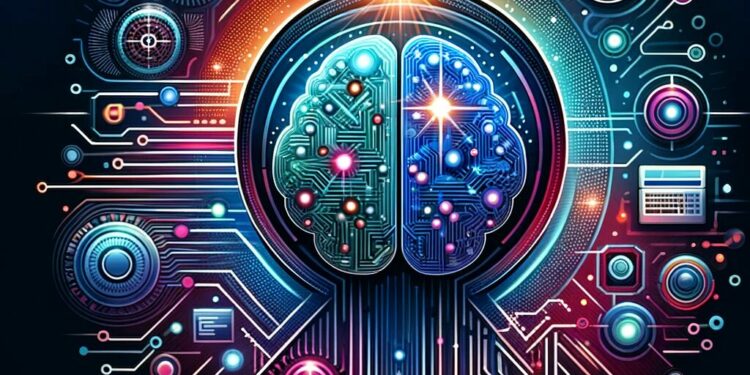Introduction
In the rapidly evolving world of technology, Artificial Intelligence (AI) and Machine Learning (ML) stand as cornerstones of modern innovation. These technologies are not merely reshaping industries; they are redefining the very fabric of our existence. As we journey through 2024, the advancements in AI and ML are accelerating at an unprecedented pace, promising a future brimming with possibilities and transformations.
Transforming Industries: The Impact of AI and ML
Healthcare Revolution
AI in Diagnostics and Treatment
AI algorithms have become incredibly adept at diagnosing diseases from medical images, sometimes with greater accuracy than human physicians. These advancements are crucial in early detection and treatment planning, particularly for cancer, heart disease, and neurological disorders.
Personalized Medicine
Leveraging AI, healthcare providers are moving towards personalized medicine. AI can analyze a patient’s genetic makeup, lifestyle, and clinical history to recommend tailored treatment plans, offering a more effective approach to healthcare.
Finance and Banking Transformation
Fraud Detection and Risk Assessment
AI plays a pivotal role in detecting fraudulent activities and assessing risks in real-time. By analyzing patterns and behaviors in massive datasets, AI systems can identify anomalies that indicate fraud or financial risks.
Algorithmic Trading
In the stock market, AI-driven algorithmic trading uses complex algorithms to make high-speed, efficient trading decisions, often outperforming human traders in terms of speed and accuracy.
Manufacturing and Supply Chain Optimization
Predictive Maintenance
AI in manufacturing has revolutionized equipment maintenance, using sensors and predictive analytics to anticipate equipment failures before they occur, significantly reducing downtime and maintenance costs.
Supply Chain Efficiency
AI optimizes supply chain operations by forecasting demand, managing inventory, and identifying the most efficient routes and methods for logistics, leading to a more streamlined and cost-effective process.
Autonomous Vehicles
Self-Driving Technology
AI and ML are at the forefront of developing autonomous vehicle technology. These vehicles use a combination of sensors, cameras, and advanced algorithms to navigate safely and efficiently, with the potential to reduce accidents caused by human error.
Ethical and Regulatory Challenges
The development of autonomous vehicles also raises ethical and regulatory challenges, including safety standards, liability in case of accidents, and moral decision-making in unavoidable crash scenarios.
Navigating Challenges: Ethical and Social Implications
Addressing Bias and Fairness
Inherent Biases in AI Systems
AI systems can inherit biases present in their training data, leading to unfair or discriminatory outcomes. Addressing these biases involves careful data curation and the development of algorithms that can identify and correct biased patterns.
Data Privacy Concerns
Balancing Innovation and Privacy
The reliance on big data for AI poses significant privacy concerns. Protecting personal information while leveraging AI for innovation requires robust data protection policies and technologies like data anonymization.
Regulatory and Governance Issues
The Need for Global Standards
The rapid advancement of AI technologies necessitates comprehensive and agile regulatory frameworks to govern their use, ensuring they are developed and deployed responsibly and ethically.
Looking Ahead: The Future of AI and ML
Integration with Quantum Computing
Unleashing New Capabilities
The integration of AI with quantum computing is poised to dramatically increase computational power, opening up new possibilities for AI applications, particularly in fields requiring complex calculations like drug discovery and climate modeling.
AI and the Future Workforce
Reshaping Job Markets
AI is transforming job markets, automating routine tasks, and creating demand for new skill sets. This shift requires a rethinking of education and training systems to prepare the workforce for an AI-driven economy.
Environmental Impact and Sustainable AI
The Green AI Movement
As AI systems become more powerful, their energy consumption grows. There’s a growing movement towards ‘Green AI’, focusing on developing more energy-efficient AI algorithms and using renewable energy sources to power data centers.
Conclusion
The advancements in AI and ML are setting the stage for a future where intelligent machines augment human capabilities, making our lives more efficient, safer, and more personalized. While these technologies offer immense potential, they also come with significant challenges that need to be addressed responsibly. As we continue to innovate, it’s crucial to ensure that AI development is aligned with ethical standards, privacy concerns, and environmental sustainability.
Further Study and Resources
- AI and Machine Learning Demystified
- The Future of Healthcare: AI and Personalized Medicine
- Ethics in AI: Navigating the Challenges
References
- Smith, J. (2024). “The Rise of AI in Healthcare.” Journal of Medical Technology.
- Lee, K. (2023). “AI in Finance: Risk, Rewards, and Regulation.” Financial Review.
- O’Neil, M. (2024). “Ethics and AI: An Emerging Field.” AI Ethics Journal.
- Green AI Initiative. (2024). “Sustainable Practices in AI Development.”




























